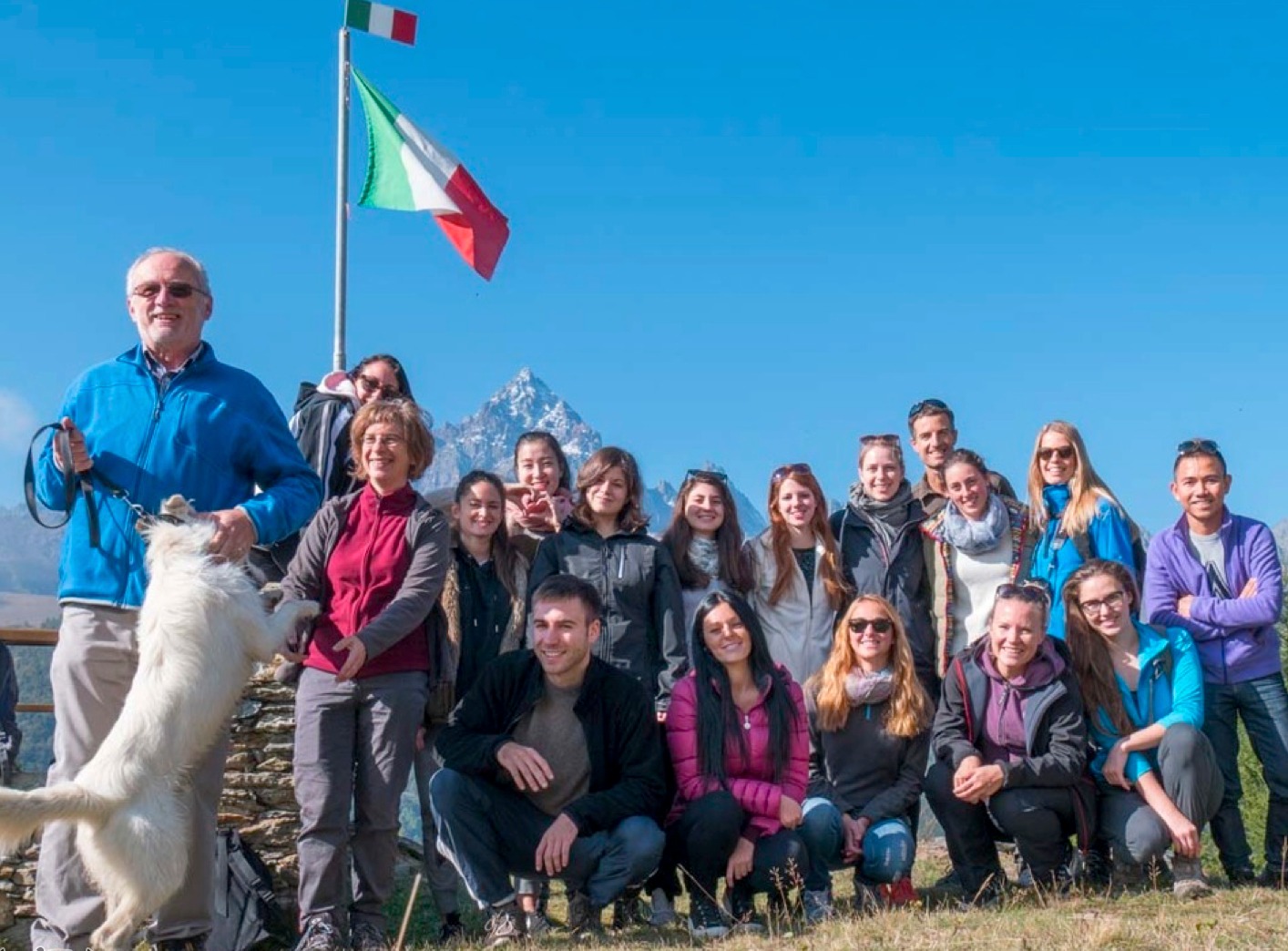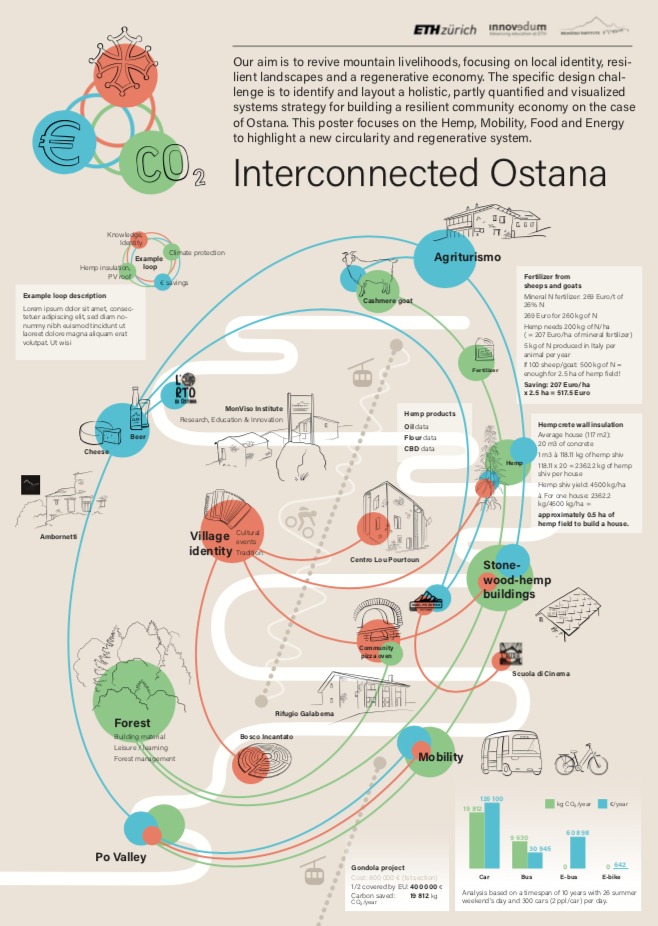Study experiments

Study experiments are helpful tools to carefully explore and analyse systems relations, and set the knowledge base for systemic innovation. When a study course, for example a University Master course of 20 students, does a mobility experiment backed up by a questionnaire survey, interviewing local inhabitants and tourists, then such serve both as valuable learning lab for students, and as low-threshold intervention into a "delicate" social context. Students may ask anything, they may present their study results as their learnings, and new bold ideas may not unfold the same social rumor as a University publication or a direct professional consulting. Study experiments allow for "softer" social inclusion. MVI collaborates with various Universities, schools and organizations to offer such synergistic opportunities within the community of Ostana, the Po river valley, the Piedmont Region, and across the nearby border to France.
Examples of MVI study experiments in Ostana
University of Lugano, Master in International Economics and Communication, Major Tourism: Social Network Analysis of the collaborative strucure and openness for innovation in the community of Ostana, including in-depth qualitative interviews (2017).
University of Lugano, Master in International Economics and Communication, Major Tourism: Mobility experiment together with and for the Ostana Commune. All incoming car and motorbike traffic was stopped, being asked for participation in an experiment to leave the car/motorbike in the valley, use a free mini-bus taxi service to access mountain slope of Ostana, and fill out a choice experiment survey. This survey, a conjoint analysis, delivered valuable insights into preferences for future mobility strategies in Ostana. Interviewees received a wooden "coin", a simple exchange currency, to swap for a free coffee in one of Ostana's bars and restaurants. This experiment was done twice, in 2017 and 2018.

Texts
ETH Zurich: Master students of the course "Systemic Design Labs" on the topic of "Regenerate Alpine-Urban Circularity" developed a data base and visualized systems map for circular thinking and a circular economy in Ostana and the Valle Po. For example, students did in-depth literature research, local interviews, and data modeling to understand circular opportunities in the valley and the village. They calculated the potential to generate renewable energy with photovoltaics in the entire Po Valley, using satellite image data and self-programmed protocols to calculate the surface of all South facing roofs in this valley. Together with the seasonal change and the shadowing effects of the mountain scape, students developed concrete energy modeling data of policy relevance. All of this data was compiled and highlighted in visual systems diagrams, which are supposed to be used for policy and public communication to spur circular thinking and support for systemic innovation (2019)







